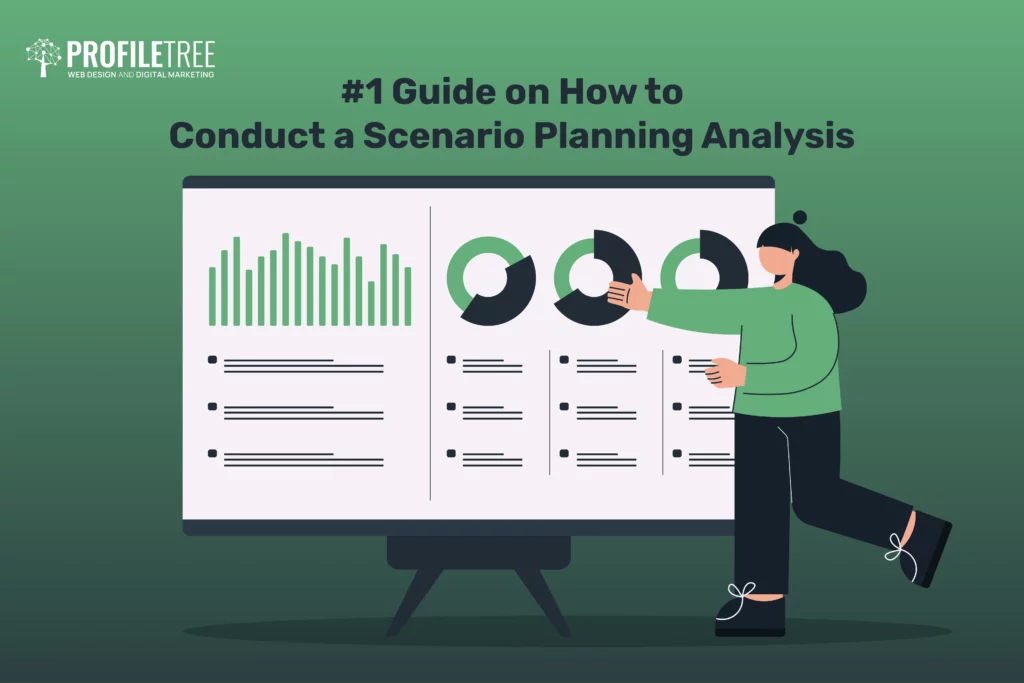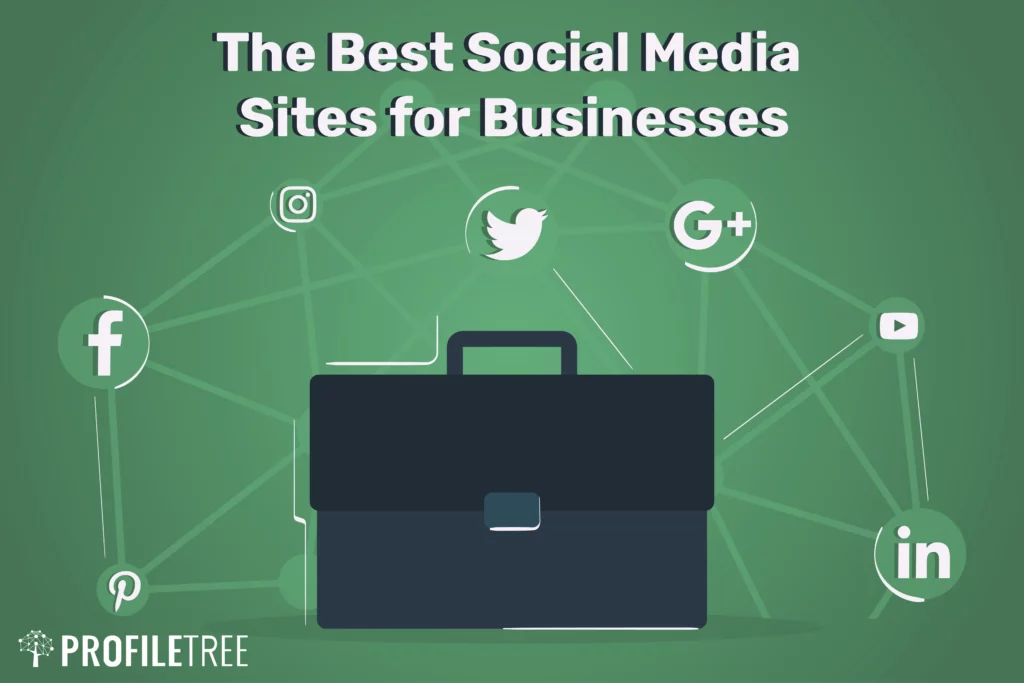Starting a food business? An experienced food business development consultant has revealed a number of essential insights for food producers.
Dreaming of taking your cherished family recipes or time-honed cooking capabilities to market? You’re not alone. The rise of ghost kitchens, delivery apps and changing consumer palettes accelerated by the pandemic has fueled surging interest in commercializing homegrown food craft into bustling business ventures.
Yet despite mouthwatering prospects of ownership freedom paired with doing what you love, uncharted operational complexities, regulatory hurdles and intensified competition underscore the imperative of properly planning for sustainable success versus crashed aspirations.
Oonagh Monahan, of Ireland-based Alpha Omega Consultants, uses her knowledge of areas including food science and quality management to help food companies achieve success.

Table of Contents
Starting Food Business? Tips for Food Producers With Oonagh Monahan
Oonagh introduced herself and her work by outlining the range of professional experience clients can access through her consultancy.
“I’ve been working in, and with, the food industry probably for about 20 years now. I started off as a a microbiologist then specialised in food science and technology.
“My very first job in the food sector was with Mr Kipling in the UK, I worked there for a number of years then came back and worked with Kerry Group for a few years. I was Quality Manager based in Monaghan.
“I took a detour into pharma for a little while but then I came back to the food sector and have been working with small food producers for many years.
“I do love the startup side of things, but I also work with some very big producers.”
How does working in the UK food market differ from being part of the market in Ireland?
“What struck me was how much cake people ate!
“The big difference was the population size, they have ten times the population we have here. It’s only when you begin to see the scale of things you realise what a large country the UK is compared to here.
“When I came back to Ireland I worked for Kerry Group, most of the turkey sales every week went to the UK. It’s a huge market.”
Oonagh’s support for food producers can vary depending on the stage they have reached in developing their business.
“I do a lot of work with small startups, pre-startups even, to help them work out what their idea is in detail.
“Most people would say they want to set up a food business because of their love of food, or making or baking or growing food, and want to commercialise that. But they have no clue how to go about it or underestimate what’s involved or are afraid of asking the agencies or authorities for help as they think they might come down on them like a ton of bricks!
“At the other end of things I work with large companies like the Irish Bread Bakers Association. I’m Technical Consultant for them.”
Part of the consultancy involves dealing with some of the common myths around food.
“The thing with the Internet is that it’s open for any person to put up their opinion and the difficulty for the average person is to tell what’s opinion and what is fact.
“For me, with my background in science, if it’s not based on evidence I’m not interested in hearing it really.
“Some of the talk around food has people’s best interests at heart but is a little bit misguided, to give you an example you often hear that bread is bad for you, you shouldn’t be eating bread or if you’re trying to lose weight you should stop eating bread. Which is all completely incorrect.
“I am speaking as the Technical Consultant for the Irish Bread Bakers, to put my hand up and be honest about it, but there’s no fat in bread. As with everything if you eat it as part of a balanced diet it provides loads of nutrients.”
Oonagh explained that scaling up is consistently a challenge for food producers due to one particular factor businesses can struggle with from the very start.
“The big issue from day one is distribution. You’re trying to run a food business and a distribution business at the same time.
“There’s a lot of talk about people sharing distribution routes but that takes quite a lot of work to try to co-operate with other producers.
“I do know there are a few programmes running around the country to try to look at that to see if there’s some way of helping people collaborate, or having distribution hubs, but so far there really isn’t anything.
“The other thing is that trying to find a distributor is a black art. If you see a van parked outside a shop go up to them and say ‘who are you, what are you delivering, where do you go and do you have any space to take me on?’.
“Van drivers and truck drivers are always looking for more produce to carry. Always.”
To hear more expertise from Oonagh explore our full video interview.

Navigating the Regulatory Maze: Licenses, Legalities, and Food Safety for Your Food Business
Starting a food business is a delicious dream, but navigating the regulatory and permitting process can feel like tackling a plate of unfamiliar ingredients. Let’s break down the essential steps to ensure your culinary creation stays compliant and safe:
1. Licenses and Permits:
- Business License: Every state and municipality requires a business license to operate legally. Contact your local government office for specific requirements and application procedures.
- Zoning and Building Permits: Ensure your chosen location allows your type of business and obtain any necessary permits for renovations, signage, or equipment installation.
- Health Department Permits: Food safety is paramount. Contact your local health department to understand inspection procedures and obtain mandatory permits for food handling and preparation.
- Additional Permits: Depending on your business model, you might need specific licenses for alcohol sales, outdoor seating, catering, or food trucks. Research your area’s regulations carefully.
2. Legal Structures:
- Sole Proprietorship: The simplest structure, but you hold personal liability for business debts and liabilities.
- Partnership: Works if you have co-founders, but both parties share liabilities. Consider a partnership agreement outlining roles, responsibilities, and profit sharing.
- Limited Liability Company (LLC): Offers personal liability protection, while allowing flexibility in tax structure and management. A popular choice for small businesses.
- Corporation: Offers the most comprehensive liability protection, but involves more complex paperwork and regulations. Consult with a legal professional to determine the best fit for your specific needs.
3. Food Safety Protocols:
- HACCP (Hazard Analysis and Critical Control Points): Implement a HACCP plan to identify and control potential food safety hazards at every stage of your operation, from purchasing ingredients to storage and preparation.
- Food Handler Training: All employees who handle food must undergo food safety training to learn proper hygiene practices, allergen awareness, and safe food handling techniques.
- Recordkeeping: Maintain detailed records of food purchases, temperatures, sanitation procedures, and training logs for inspection purposes.
- Insurance: Consider securing food liability insurance to protect your business from financial losses due to foodborne illness or product liability claims.
Actionable Tips:
- Reach out to your local Small Business Administration (SBA) office. They offer resources and guidance on legal structures, permits, and food safety regulations.
- Join relevant industry associations. Local or national organizations like the National Restaurant Association provide comprehensive resources and support for food businesses.
- Invest in food safety training and certification programs. Show your commitment to safety and gain valuable knowledge for optimal operations.
- Partner with a food safety consultant. Seek professional guidance to develop and implement a customized HACCP plan and ensure compliance with regulations.
Recent Food Business Statistics for Reader Awareness (2023):
Growth and Potential:
- The global foodservice market is projected to reach $3.78 trillion by 2028, growing at a CAGR of 3.8%. (IMARC Group, 2022)
- Online food ordering is expected to top $365 billion by 2030, highlighting the shift towards digital convenience. (Statista, 2023)
- Specialty food and beverage sales are expected to grow at a faster rate than the overall food market, reaching $170.5 billion by 2025. (Specialty Food Association, 2023)
Challenges and Failure Rates:
- While the food industry offers potential, failure rates remain high, with estimates ranging from 60% to 80% within the first five years. (Bureau of Labor Statistics, National Restaurant Association)
- Common reasons for failure include inadequate funding, poor location, lack of marketing, and operational inefficiencies. (Inc. Magazine, 2023)
- Average startup costs vary widely depending on the type of business (restaurant, catering, food truck), but can range from $25,000 to $250,000 or more. (SCORE, 2023)
Setting Reader Expectations:
- Present a balanced picture of the potential and challenges facing aspiring food entrepreneurs. Highlight the promising growth rates and niche opportunities while acknowledging the high failure rate and necessary preparation.
- Connect statistics to actionable advice. Use data to emphasize the importance of thorough market research, financial planning, strong operational systems, and effective marketing strategies for increasing success odds.
- Offer resources and support options. Include links to business planning guides, industry associations, or mentorship programs to empower readers with the tools they need to navigate the complexities of starting a food business.
Sources:
- IMARC Group: https://www.imarcgroup.com/food-service-market
- Statista: https://www.statista.com/study/124979/food-ecommerce/
- Specialty Food Association: https://www.specialtyfood.com/news/article/newly-released-research-state-specialty-food-industry-2022-2023-edition/
- Bureau of Labor Statistics: https://www.bls.gov/blog/2018/small-businesses-this-is-for-you.htm
- National Restaurant Association: https://restaurant.org/events-and-community/events-calendar/2023-state-of-the-restaurant-industry/
- Inc. Magazine: https://www.cnbc.com/2016/01/20/heres-the-real-reason-why-most-restaurants-fail.html
- SCORE: https://www.score.org/content/frequently-asked-questions-about-score

Weighing the Startup vs. Acquisition Paths for Your Food Business Dream
So you’ve got a culinary vision simmering in your head, but the question remains: should you start a food business from scratch, or consider acquiring an existing one? Both paths offer distinct advantages and challenges, and choosing the right one depends on your goals, resources, and risk tolerance. Let’s explore the pros and cons of each approach:
Starting from Scratch:
Pros:
- Total Creative Control: Craft your concept from the ground up, shaping every aspect of the menu, brand identity, and customer experience.
- Lower upfront costs: Starting small can often require less initial investment than acquiring an existing establishment.
- Flexibility and Adaptability: You can easily pivot your concept as you learn and adapt to market trends.
- Sense of Achievement: Building your business from the ground up offers a unique sense of ownership and accomplishment.
Cons:
- Higher Risk: Launching a new venture involves navigating uncertainties and overcoming operational hurdles, leading to a higher potential for failure.
- Time-consuming and Demanding: Be prepared for long hours, bootstrapping, and the need for diverse skills to handle everything from marketing to bookkeeping.
- Building Brand Recognition: Creating a loyal customer base and establishing your brand takes time and sustained effort.
- No Guaranteed Success: Even with thorough planning and execution, success in the food industry isn’t guaranteed.
Acquiring an Existing Food Business:
Pros:
- Established Customer Base and Brand Recognition: Tap into an existing market and leverage the brand awareness of the acquired business.
- Reduced Operational Start-Up Time: Hit the ground running with infrastructure, equipment, and staff already in place.
- Potential for Revenue and Profit from Day One: Enjoy immediate income and build upon the existing business foundation.
- Reduced Marketing and Building Costs: Existing structures like menu, website, and signage can save you time and money.
Cons:
- Higher Upfront Investment: Acquisitions often require a significant financial outlay, potentially involving loans or investors.
- Possible Legacy Issues: Be prepared to navigate existing debt, employee concerns, and potential problems inherited from the previous owner.
- Limited Creative Control: Adapt to the existing concept and clientele, leaving less room for immediate customization.
- Integration Challenges: Merging your vision with the existing culture and operations can be a complex process.
Choosing the Right Path:
Ultimately, the ideal path depends on your individual circumstances. Consider your financial resources, risk tolerance, entrepreneurial spirit, and desired level of creative control. If you thrive on building something from scratch and enjoy the challenge of shaping your concept, starting fresh might be your calling. However, if you value a quicker entry point, existing customer base, and lower initial risk, acquiring an established business could be the wiser choice.
Bonus Tip:
- Regardless of your decision, thorough research and due diligence are crucial. For acquisitions, scrutinize financial records, lease agreements, and employee contracts. For startups, develop a comprehensive business plan and conduct market research to ensure your concept resonates with your target audience.
From Pizza Vision to Pasta Paradise: The Story of “Sals & Sons”
In the bustling heart of Brooklyn, nestled between vintage record shops and quaint cafes, lies “Sals & Sons,” a haven of homemade pasta bathed in warm lighting and laughter. But behind the steaming plates and lively conversations lies the story of Marco Rossi, a young entrepreneur whose journey began not in culinary schools, but on his grandmother’s kitchen floor.
“Every Sunday,” Marco reminisces, “Grandmother Nonna would transform our tiny apartment into a wonderland of aromas. Sizzling meatballs, bubbling bolognese, and her magical touch with flour turning into pillowy gnocchi. That’s where my love for food, for family, for sharing a warm meal, was born.”
But the path to pasta paradise wasn’t paved with penne. After business school, Marco found himself in a corporate cubicle, the aroma of spreadsheets replacing that of simmering sauces. The yearning for Nonna’s magic grew, whispering tales of unfulfilled potential.
The “aha” moment struck during a particularly bland office lunch. “I realized then,” Marco admits, “I wasn’t meant to eat pre-packaged mediocrity. I wanted to create a space where people could connect over the kind of food that nourishes souls, not just stomachs.”
So, with Nonna’s recipes as his compass and a heart full of ambition, Marco embarked on his adventure. He started small, a pop-up stall at local farmers’ markets, testing his grandmother’s legacy against discerning palates. The response was electric: lines snaked around the stall, faces lit up with each bite of Nonna’s magic.
But the journey wasn’t without its challenges. Rent for a brick-and-mortar space seemed like a mountain, permits felt like endless paperwork, and doubts often gnawed at his resolve. Yet, Marco persevered. He nurtured a loyal following through social media, secured a small loan with the help of family, and finally, “Sals & Sons” opened its doors.
Today, the restaurant bustles with life. The air vibrates with the clinking of glasses, the murmur of conversations, and the infectious passion of Marco greeting guests as if they were part of the family. The menu boasts Nonna’s classics alongside Marco’s own culinary creations, each dish a testament to his journey.
Marco’s Keys to Success:
- Never lose sight of your passion: Let your love for the craft fuel your drive through challenges.
- Start small and iterate: Test your concept, learn from customers, and adapt before taking bigger leaps.
- Embrace community: Build relationships with suppliers, farmers, and fellow entrepreneurs. A strong network is your support system.
- Stay true to your roots: Nonna’s recipes are the heart of “Sals & Sons,” reminding Marco of his purpose and authenticity.
- Give back: Sals & Sons hosts cooking classes for seniors, ensuring Nonna’s legacy continues to inspire future generations.
Marco’s story is more than just pasta and profits. It’s a testament to the power of family, passion, and unwavering belief in a dream. As he says with a smile, “Every plate served at Sals & Sons carries a bit of Nonna’s love. And that’s the secret ingredient that makes it all worthwhile.”

FAQs:
1. How much does it cost to start a food business?
Costs can vary significantly depending on factors like location, business model (restaurant, catering, food truck), and existing infrastructure. Research suggests startup costs can range from $25,000 to $250,000 or more. Consider developing a detailed business plan to accurately estimate your specific needs.
2. What are the most common challenges of starting a food business?
High failure rates, intense competition, navigating regulations and permits, securing funding, maintaining consistent quality, and building a loyal customer base are some common challenges. Research, planning, strong work ethic, and adaptability are key to overcoming these hurdles.
3. What licenses and permits do I need?
Required licenses and permits vary by location and business type. Generally, you’ll need a business license, health department permits, and depending on specifics, additional permits for alcohol sales, outdoor seating, catering, or food trucks. Contact your local government and health department for precise requirements.
4. What food safety protocols should I follow?
Implementing a HACCP (Hazard Analysis and Critical Control Points) plan, ensuring proper hygiene practices, training employees in food safety, maintaining detailed records, and considering food liability insurance are crucial for safe food handling and compliance.
5. Should I start from scratch or acquire an existing business?
There’s no one-size-fits-all answer. Consider your financial resources, risk tolerance, entrepreneurial spirit, and desired creative control. Startups offer total creative control and lower upfront costs, but involve higher risk and longer lead time. Acquisitions offer established customer base and quicker entry, but require greater investment and potential legacy issues. Analyze your situation and research options thoroughly before making a decision.
Conclusion:
Launching a food business is an exciting adventure, but it requires passion, preparation, and perseverance. This article has provided you with a roadmap to navigate the process, from initial inspiration to operational reality. Remember, research, planning, dedication to quality and customer satisfaction, and a healthy dose of entrepreneurial spirit are the essential ingredients for success. Take inspiration from the stories of those who have walked the path before you, embrace the challenges and opportunities, and let your culinary creativity bloom into a delicious and rewarding journey.
Insights from ProfileTree Business Leaders
What is Energy Monitoring | What is Sustainable Tourism | How to Create Digital Products | Online Learning for Business | Why is FDI Important | How to Create a Culture of Innovation | What is Augmented Reality | How to Manage a Restaurant | Do you have a Tourism Strategy | What is Conflict Resolution | Intercultural Training | How to use Mindfulness at Work | Bookkeeping for Small Businesses
How to get a Better Job | How to Start an ECommerce Business| What is Learning Technology | Starting a Business| How to Combine Personal and Business Development | Better Collaboration Using Google | Innovation in App Development | How Online Resources Can Help Mental Health Accessibility| Support for Businesses | Scale a Business| What is Data Digitalisation?


